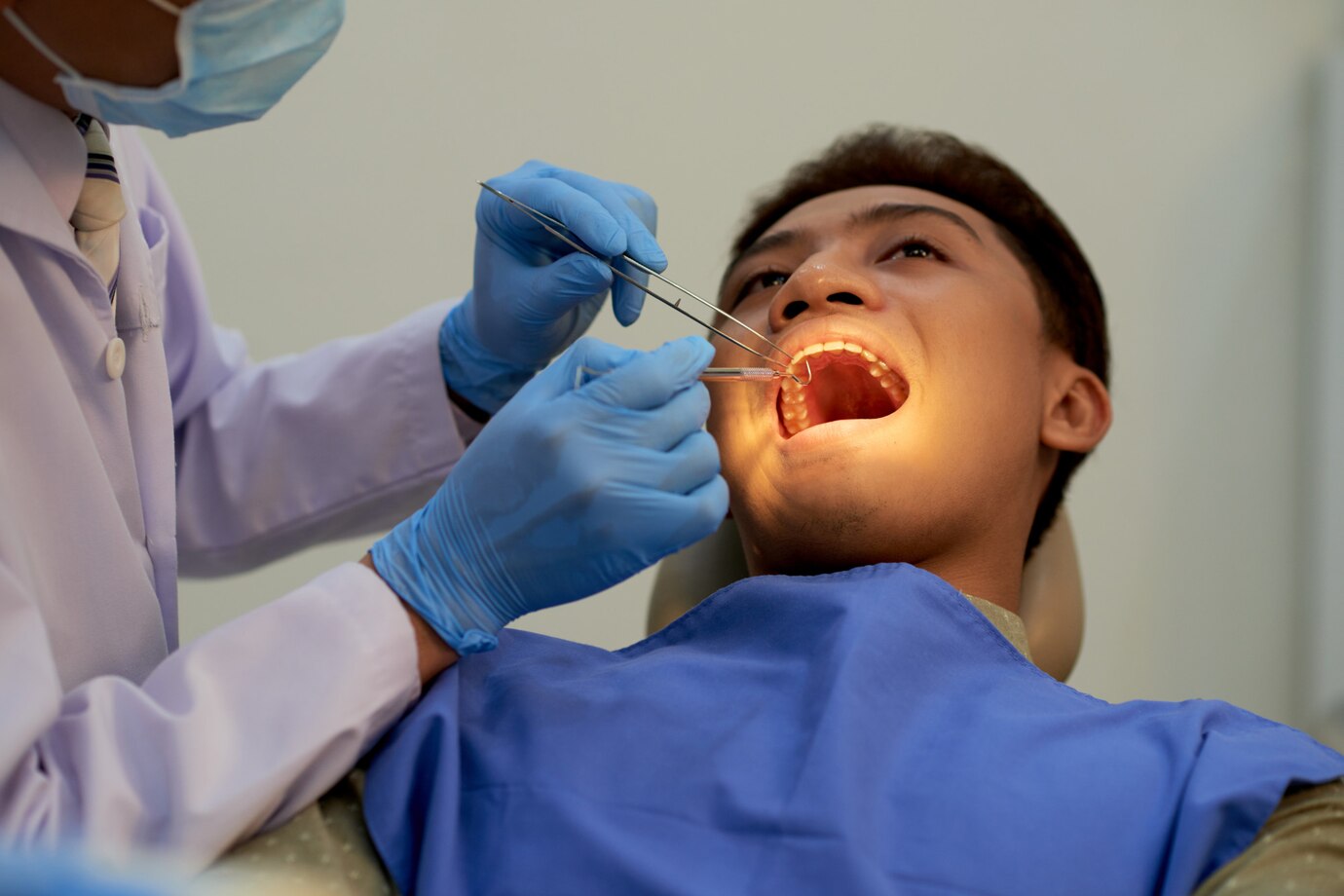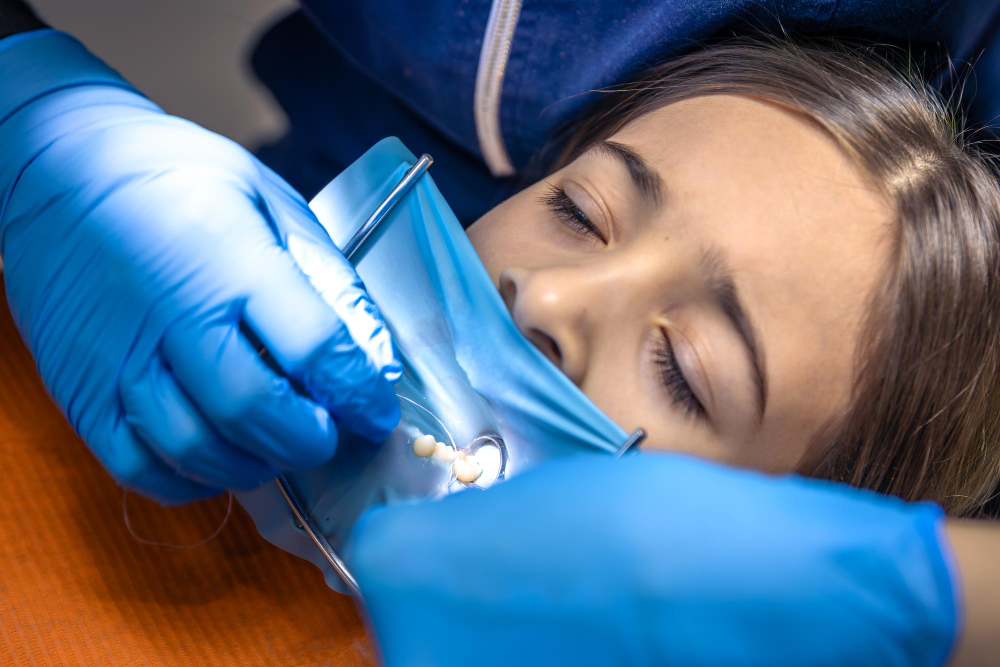
A surgical extraction is performed when a tooth is not easily accessible or fully erupted. It involves making an incision in the gum to remove impacted, broken, or complex-rooted teeth.
A surgical extraction is a procedure used to remove a tooth that is not easily accessible or has not fully emerged from the gum line. This is often necessary for impacted teeth, broken teeth, or teeth with curved roots. Unlike simple extractions, which involve removing a visible tooth, surgical extractions require an incision in the gum to access the affected tooth.
Surgical extractions may be recommended in the following situations:
Impacted wisdom teeth
Severely decayed or damaged teeth
Teeth with complex root structures
Preparation for orthodontic treatment
Infection or an abscessed tooth

Wisdom teeth are often removed when they become impacted or cause crowding and discomfort. The procedure involves sedation, gum incision, tooth removal, and a short recovery period.
Wisdom teeth, or third molars, are the last set of molars that typically emerge in late teens or early twenties. In many cases, there is not enough space in the mouth to accommodate them, leading to impaction, pain, and other dental issues.
Persistent pain or discomfort in the back of the mouth
Swollen or tender gums
Jaw pain or stiffness
Difficulty opening your mouth
Infection or cysts around the wisdom teeth
Consultation & Examination: Your dentist or oral surgeon will evaluate your teeth using X-rays to determine if extraction is necessary.
Anesthesia: Local anesthesia, sedation, or general anesthesia may be used to ensure comfort.
Extraction: The dentist will make an incision in the gum to access the tooth, remove any bone blocking it, and then extract the tooth.
Stitching & Recovery: Stitches may be placed, and gauze is applied to control bleeding. Recovery typically takes a few days, with swelling and mild discomfort expected.

After extraction, manage pain with medication, reduce swelling with ice packs, and avoid certain foods and habits like smoking to ensure proper healing and prevent complications like dry socket.
Use prescribed pain relievers and antibiotics as directed
Apply ice packs to reduce swelling
Avoid hard, chewy, or spicy foods for a few days
Keep the extraction site clean by following your dentist’s instructions
Avoid smoking or using straws to prevent dry socket
Our experienced and specialist team provides gentle and precise care for surgical extractions and wisdom teeth removal. We use advanced technology to ensure safe and effective treatment, prioritizing your comfort and quick recovery.
If you are experiencing tooth pain or need a consultation for wisdom teeth removal, contact us today to schedule an appointment!
Dental emergencies can happen at any time, and when they do, we’re here to help. Whether you’re experiencing a severe toothache, a broken tooth, or another urgent issue, our team is ready to provide prompt and compassionate care.
A surgical extraction is a procedure used to remove a tooth that cannot be easily extracted, such as an impacted or broken tooth. It involves making an incision in the gum to access and remove the tooth.
Surgical extraction is typically required when a tooth is deeply damaged, impacted, or not fully erupted. This procedure is also used for wisdom teeth or when other methods of extraction are not possible.
Surgical extractions are performed under local anesthesia, ensuring you remain comfortable throughout the procedure. Post-treatment pain is manageable with prescribed pain relievers.
Recovery time can vary, but most patients experience minimal discomfort and swelling. Full recovery typically takes 1-2 weeks, with aftercare instructions to help speed up healing.
If you experience severe pain or any urgent dental issue, it's important to seek immediate care. Contact us to schedule an emergency appointment, and we will ensure you get the treatment you need quickly.
Your initial dental appointment is crucial. Expect a thorough examination, including checking your teeth, gums, and overall oral health. The dentist may take X-rays and discuss any necessary treatments or preventive measures. Don’t hesitate to ask questions during this visit.


